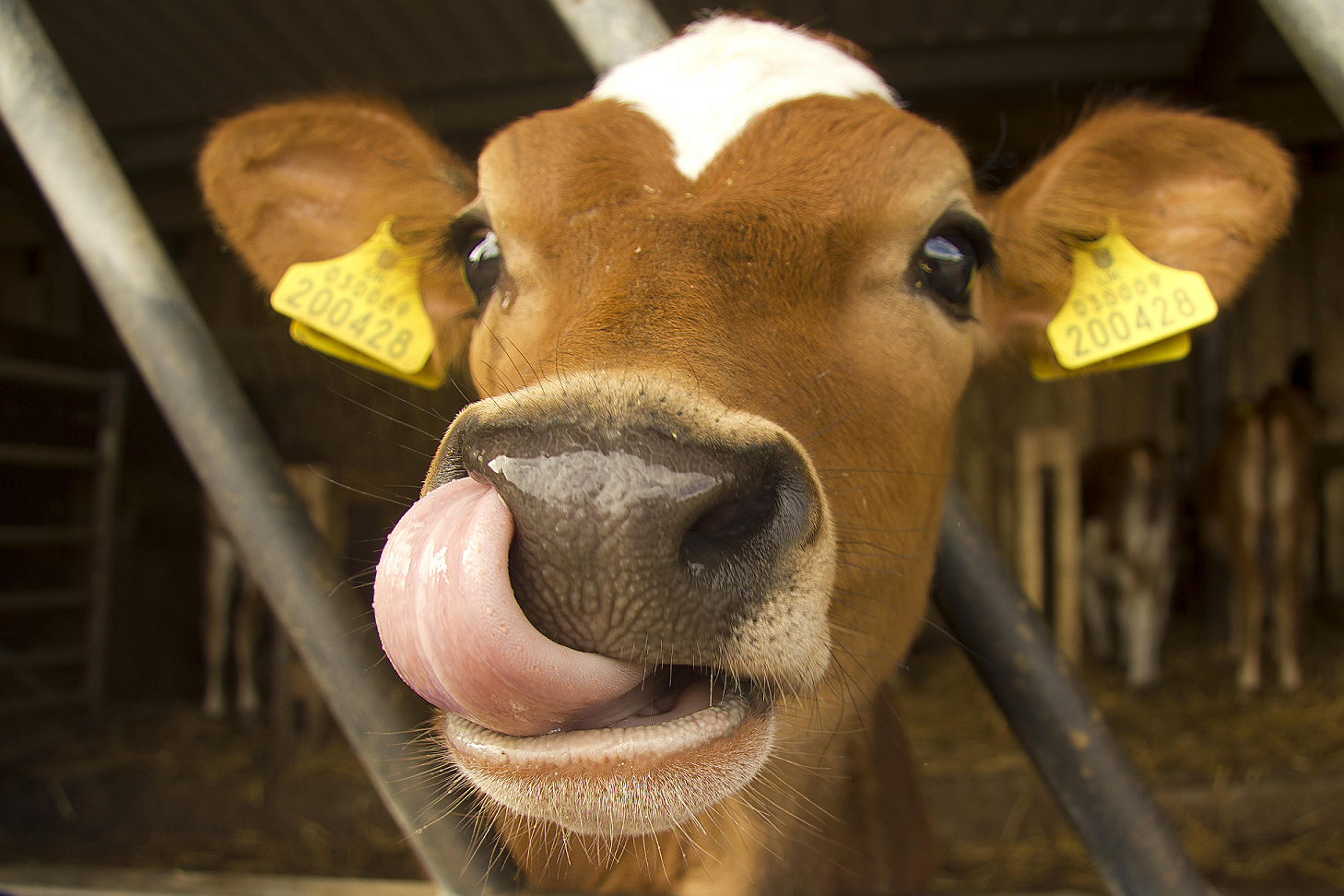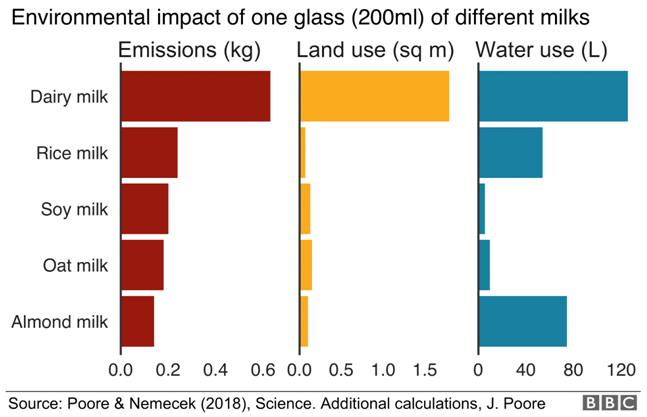There are many reasons why someone might decide to switch from cow’s milk to a non-dairy alternative, including an allergy or intolerance, lifestyle choices, concerns with inflammation, ethical considerations or taste preference. This calls into question whether plant-based milk is ‘better’ for our health.

Differences in Nutrient Content
Cow’s Milk
Cow’s milk is a natural product that is rich in protein, calcium, vitamin D, phosphorus, B vitamins and vitamin A, all of which are vital in maintaining our health. These nutrients support bone growth, building and maintaining muscle and ensuring a healthy immune system.
Soy Milk
The protein content of soy milk has been found to be the most nutritionally similar to cow’s milk; some soy milk is classed as a high-quality protein source due to the correct essential amino acid levels. Furthermore, soy milk is generally low in fat which can help manage cholesterol, but to achieve this you will need to have 3-4 glasses of soya milk a day. Some soy milk brands are fortified with calcium and vitamins A, B12 and D.
Oat Milk
Oat milk is enriched in vitamin D, riboflavin (vitamin B2) and B12 as well as calcium. The popular oat milk brand Oatly contains only 1.5% unsaturated fat. Unsaturated fat, also known as the ‘good’ fat, contributes to maintaining a recommended cholesterol level.
Almond Milk
Almond milk is fortified with calcium and vitamins, including vitamin D and vitamin B12. Brands vary as to the number of almonds used in their product and will tend to include emulsifiers and stabilisers, so it is important to read labels carefully. Almond milk is a great alternative to cow’s milk if you are vegan or avoid animal products due to the vitamin B12 fortification (B12 is only found in animal products).
Environmental Impact
The environmental impact of the foods we’re consuming is an ever-growing concern and this can be a convincing factor when someone is choosing between cow’s milk and non-dairy alternatives. It is generally known that dairy cows and their manure produce greenhouse gases that contribute to climate change. Other adverse effects from the production of cow’s milk also include degrading of water resources and loss of ecologically vital areas such as prairies, wetlands, and forests. A study released in 2019 by Joseph Poore, a researcher at the University of Oxford, compared greenhouses from over 10,000 farms around the world that produce cow, almond, coconut, and soymilks. Poore concluded that dairy milk uses 9 times more land per litre of produce when compared to soy, oat, or almond milk.
However, plant-based milk can also have a significant environmental impact. For example, soy and oat milk requires a reasonable amount of land and depending on where the land is situated this can result in deforestation. Furthermore, almond milk requires a lot of water during production (more than soy or oat milk), however, still not as much as dairy milk.
Overall, it has been found that cow’s milk has a more substantial effect on climate change, however, as most of us in Jersey source our milk locally this can result in a smaller carbon footprint than the plant-based alternatives.
There are many pros and cons to consuming both cow’s milk and plant-based milk, therefore, it is important to choose which factors are most important to you.
